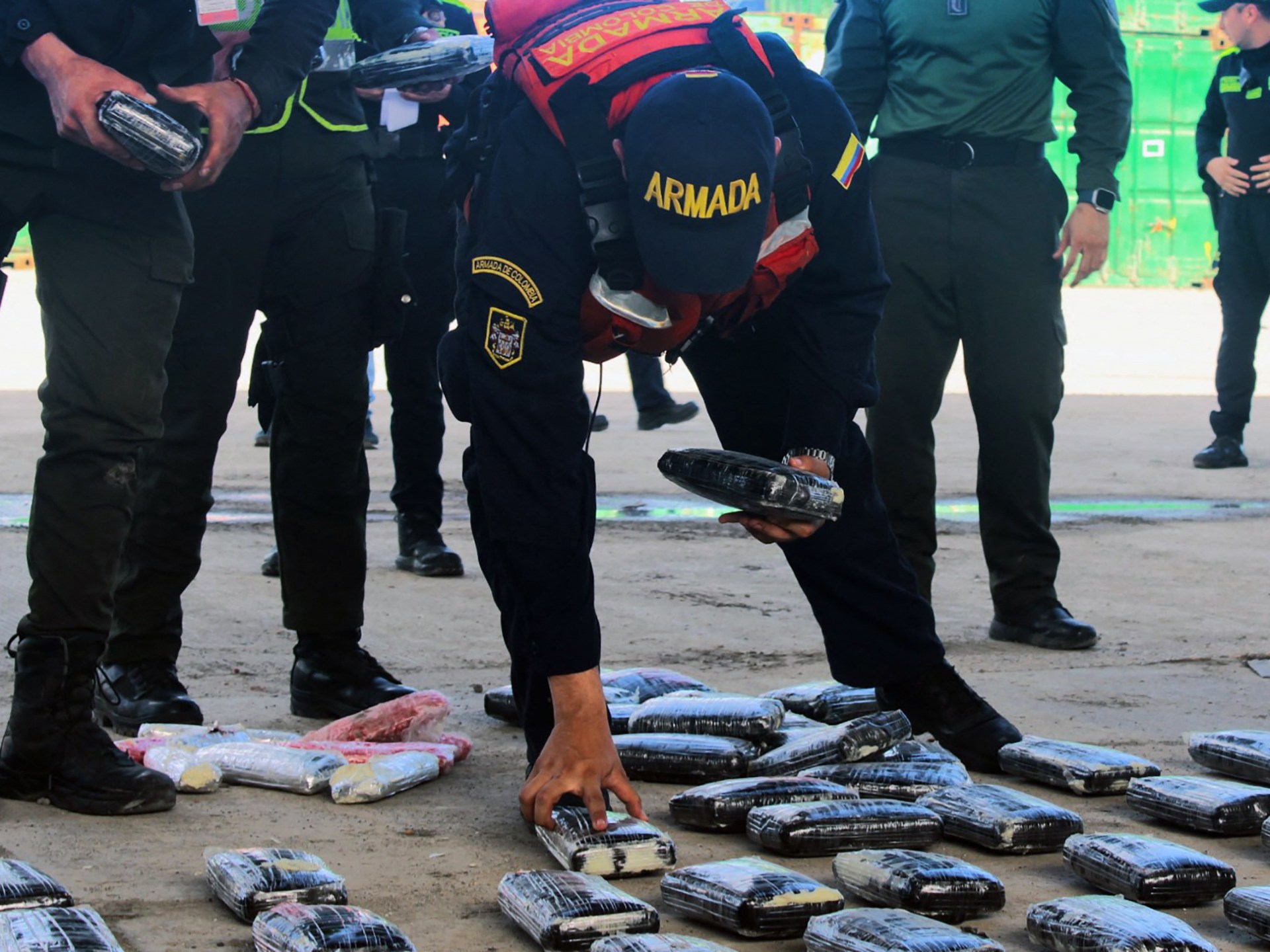Colombia's Largest Cocaine Bust in a Decade: 14 Tonnes Seized in Buenaventura Amidst US Pressure & Bolivia's DEA Return
 Colombia
International Relations
Colombia
International Relations

Colombia celebrates its largest cocaine bust in a decade, seizing 14 tonnes in Buenaventura amidst US pressure on President Petro. Bolivia invites the DEA back
Colombia Celebrates Record Cocaine Bust Amidst US Pressure and Regional Shifts
Colombia has achieved a significant victory in its battle against drug trafficking, seizing an astounding 14 tonnes of cocaine—its largest such bust in a decade. This historic operation unfolded at the principal Pacific port of Buenaventura, a crucial hub for the country's illicit drug exports. The immense haul, estimated to be worth over $388.9 million and capable of providing 35 million individual doses, was discovered camouflaged within sacks of plaster in a warehouse, destined for the Netherlands.
President Gustavo Petro lauded the operation, emphasizing that it was executed "without a single death," a point he highlighted in a social media post showcasing the police and K9 units involved. This monumental seizure comes at a particularly charged time, as Petro faces intense scrutiny and accusations from the administration of United States President Donald Trump regarding his alleged complicity in the drug trade.
Washington's Mounting Pressure and Petro's Defense
The Trump administration has consistently ramped up pressure on Bogotá, labeling Colombia's anti-drug policies as inadequate and even threatening to remove the nation from its list of allies in the global war on drugs. In a controversial move last October, the US Department of the Treasury sanctioned President Petro, his wife Veronica del Socorro Alcocer Garcia, his son Nicolas Fernando Petro Burgos, and Interior Minister Armando Alberto Benedetti, citing their alleged involvement in the international drug trade. Treasury Secretary Scott Bessent controversially stated that Petro had "allowed drug cartels to flourish" and that cocaine production in Colombia had "exploded to the highest rate in decades" under his leadership.
In a direct response to these severe allegations, President Petro ordered Colombia's Financial Information and Analysis Unit to publicly disclose his bank records. He openly challenged the US narrative, questioning why his financial statements, which contradict Trump's assessment, weren't alarming to the US administration. Petro has also been a vocal critic of Trump's anti-drug strategies, particularly condemning the repeated bombing of suspected trafficking boats in the Caribbean and eastern Pacific as "extrajudicial executions." The Trump administration, however, defends its escalated military actions, including increased warship presence, as necessary to disrupt illicit drug flows, though Venezuela views these moves as a pretext to destabilize President Nicolas Maduro's government.
Bolivia's Conservative Shift and DEA's Potential Return
Amidst the diplomatic tensions between Washington, Bogotá, and Caracas, a notable shift is occurring in Bolivia. After two decades of leftist governance, the South American nation is embarking on a conservative era, signaling improved ties with the US. Ernesto Justiniano, Bolivia's new narcotics tsar, confirmed that the US Drug Enforcement Administration (DEA)—which was expelled in 2008 by former socialist president Evo Morales—will be invited back. Justiniano, part of President Rodrigo Paz's new pro-business administration, underscored a "political commitment" for the DEA's return, acknowledging that cocaine production in Bolivia had spiraled out of control. This move marks a significant departure from previous policies, emphasizing the new government's belief in the fundamental role of international cooperation in combating drug trafficking.
This complex interplay of record drug busts, political accusations, diplomatic defenses, and regional realignments underscores the dynamic and often contentious nature of the global fight against narcotics, with Colombia at its epicenter.